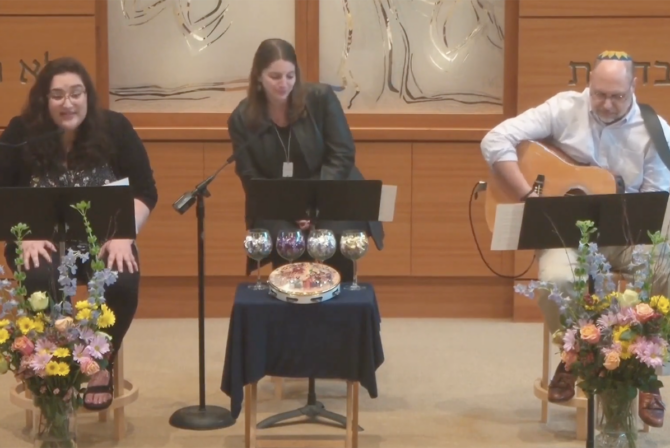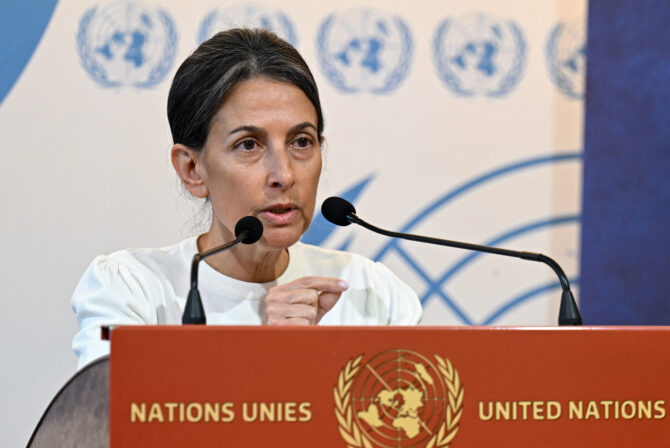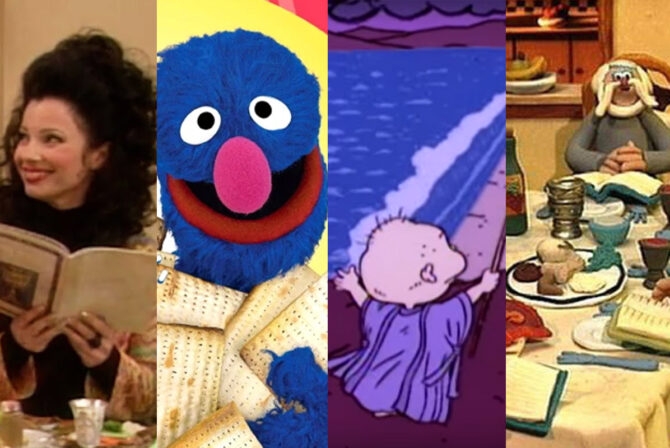One day my kindergartener came home from school and excitedly announced, “Our class is collecting canned foods for the needy!” to which I snidely replied under my breath, “We ARE the needy!”
Of course as soon as I said it, I wished the words had never left my mouth. Especially when my son’s teacher stopped me the next day at school to report that he had repeated my exact words to her. Luckily, she had a great sense of humor and found it pretty funny. “You’re telling me!” she said with a look compassion and irony. Of course I felt myself blush.
So what made me so angry in the first place? It wasn’t that I don’t love helping people. It wasn’t that I couldn’t find some dented can of God-only-knows-what in the back of my cupboard to spare. And it wasn’t that I didn’t want my son learning how to be charitable.
It was that I didn’t think that a school full of mostly white, upper-class kids being taught that throwing leftovers to people in need counted as some big mitzveh anymore than I wanted them being taught that “the needy” were some sort of different classification of people. You know–those people. The needy.
If you haven’t seen the “muffin stump” episode of Seinfeld, I urge you to now. It very comically expresses exactly what bothered me so much.
There is a lot of buzz around the web lately–something they are calling the “SNAP challenge” as promoted by the Jewish non-profit organization MAZON–which encourages individuals to live within the financial means of someone receiving the average (note: this is only an average) food stamp budget for a week. The rules seem to vary from person to person–but most agree that they will not be using previous stock piles of food nor eating out, as the SNAP program doesn’t pay for those options in real life. Neither does it pay for medication, supplements, or vitamins.
I think the results of this challenge will likely be interesting, but I can tell already from the comments I am reading on forums, blogs, and articles that people taking a week out of their life to live on a strict food budget seems to give many the impression that they will know what it means to actually live under the poverty line. So far it appears to be having the side effect of increasing judgement towards those in lower socio-economic levels, rather than increasing awareness and understanding. As one might imagine, this naturally brings about the all too common feelings of resentment from the SNAP recipients towards those who they feel do not fully understand their plight.
Many argue that the “SNAP Challenge” isn’t much of a challenge if you have certain luxuries, such as reliable transportation to and from stores that offer discounted products–something many SNAP recipients do not have available to them. Participants are often reminded that Costco memberships and buying bulk on Amazon.com, though arguably good ways to save a dime, are also not an option, especially for people without internet access. Despite the sincere efforts of an upper-middle class person trying to relate to those living below the poverty level by spending a week with their food budget restraints, I too find myself questioning if this will do any lasting good for anyone, as it is obviously only a small window into the greater issue that people in our very own communities are actually going hungry.
So what makes this a topic of such personal interest me to? I have been on SNAP–or as my state calls it, “The Food Supplement Program”, for the last 10 months. Though we never had much money, we have always been able to make it, until the economy got rough and my husband’s web design business began to really dry up. He has spent the last 18 months juggling working for himself on the work that trickles in and applying for just about any job he qualifies for. And even some he doesn’t. I would never have thought this could happen to us, as my husband has always been such a hard worker and always found a way to make it work, so admitting we needed help and making that first call to my state’s Department of Human Resources was a very emotional experience. I was now officially one of them–“the needy.”
So will this project help increase awareness or continue to increase the divide between socio-economic levels? I hope for the best. But, speaking for myself–and dare I say many others in my position–it’s not charity we want, it’s a solution.







